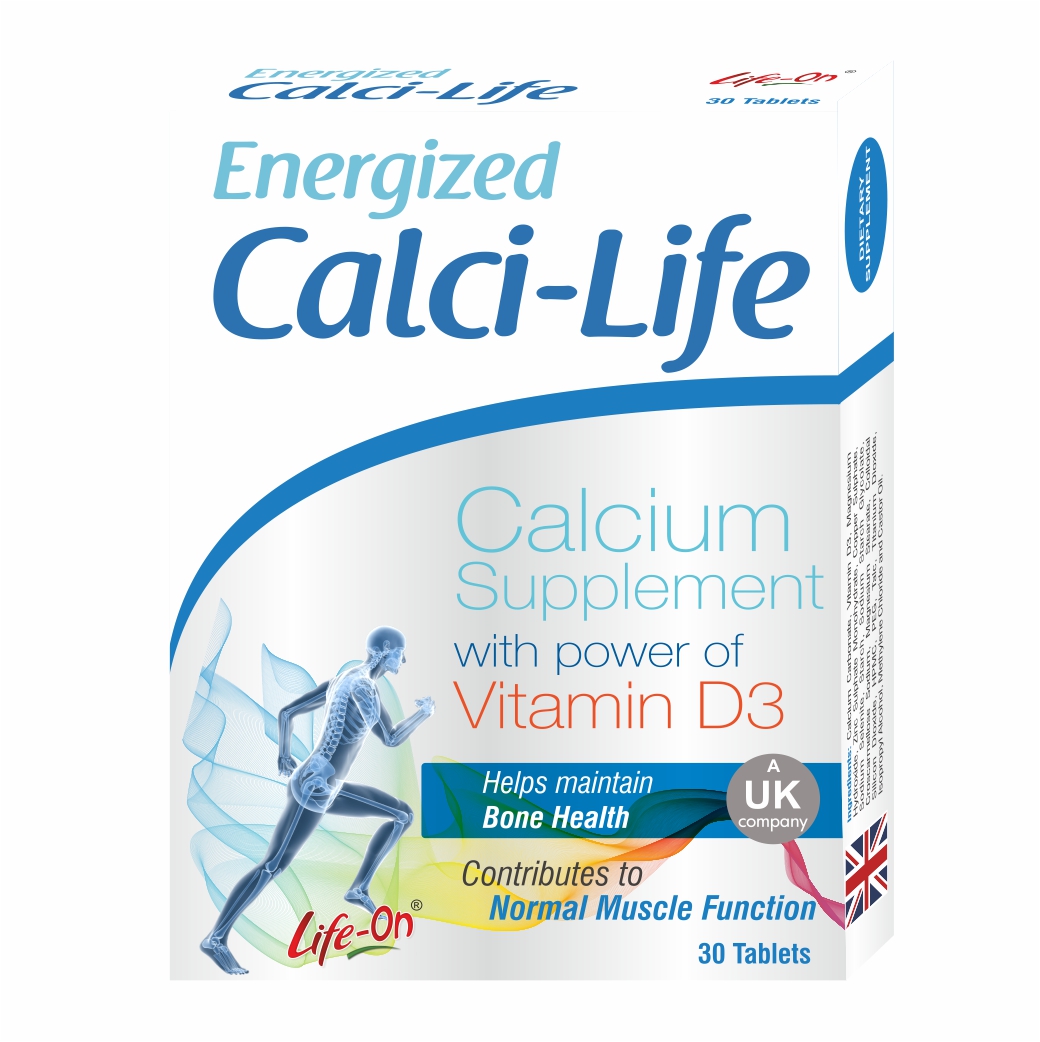
.jpg)
Product Information
Calcium as a nutrient is most commonly associated with the formation and metabolism of bone. Over 99 percent of total body calcium is found as calcium hydroxyapatite in bones and teeth, where it provides hard tissue with its strength.
Calcium present in circulatory system, extracellular fluid, muscle and other tissues and it is critical for mediating vascular contraction and vasodilatation, muscle function, nerve transmission, intracellular signalling and hormonal secretion. Bone tissue serves as a reservoir for and source of calcium for these critical metabolic needs through the process of bone remodelling (1).
Calcium is crucial in growing new bone and maintaining bone strength. Calcium supplements are standard for treating and preventing osteoporosis weak and easily broken bones and its precursor, osteopenia (2).
Daily calcium intake should be at least 1000-1200 mg/day per individual to treat and prevent osteoporosis (3), whereas vitamin D is essential for strong bones, because it helps the body to use calcium from the diet. Vitamin D deficiency has been associated with rickets, a disease in which the bone tissue doesn't properly mineralise, leading to soft bones and skeletal deformities (4).
Why Life On Calci-Life?
Life On provides you the purest source of calcium and vitamin D3, which are better absorbed when taken orally providing you small dose of 250 mg twice or thrice a day. The combination of vitamin D3 with Magnesium and Zinc are used in the better absorption of Calcium providing through supplements these Vitamins compliment the absorption and function of Calcium.
Calcium contributes in functions like blood clotting, muscle function and neurotransmission, energy-yielding metabolism and digestive enzymes. plays crucial role in regulation of cell division and differentiation and maintenance of bones and teeth (5).
Calcium and vitamin D help to reduce the loss of bone mineral in post-menopausal women. Low bone mineral density is a risk factor for osteoporotic bone fractures. The claim may be used only for food supplements which provide at least 400 mg of calcium and 15 μg of vitamin D per daily portion (5).
Calcium and vitamin D are needed for normal growth and development of bone in children (5).
Calcium plays a role in mediating the constriction (vasoconstriction) and relaxation of blood vessels (vasodilation), nerve impulse transmission, muscle contraction and the secretion of hormones like insulin (6).
Vitamin D3 helps in maintaining normal blood Calcium levels and promotes in absorption and utilisation of Calcium and Phosphorus and enhances the better functioning of the immune system (7).
Vitamin D is used for preventing and treating rickets, a disease that is caused by not having enough vitamin D.it also used for treating weak bones (osteoporosis), bone pain (osteomalacia), bone loss (hyperparathyroidism)(8).
Magnesium helps in reduction of tiredness and fatigue and promotes to perform normal psychological functioning (9).
Magnesium and zinc promote in functioning of protein synthesis, DNA synthesis, carbohydrate metabolism and fatty acids metabolism (9) (10).
Zinc helps in maintaining healthy hair, nails, skin and promotes in maintaining the testosterone levels in the body (10).
Selenium helps the formation of spermatogenesis and better functioning of thyroid gland. Copper helps in maintaining the strong connective tissues all over the body, promotes in protecting the cells from oxidative stress (12).
References
1.Overview of Calcium, https://www.ncbi.nlm.nih.gov/books/NBK56060
2.https://www.webmd.com/vitamins-and-supplements/lifestyle-guide-11/supplement-guide-calcium
3.Calcium intake and bone mineral density:systematic review and meta-analysis BMJ 2015; 351 (Published 29 September 2015)Cite this as: BMJ 2015;351:h4183
4.https://www.webmd.com/diet/guide/vitamin-d-deficiency
5.Calcium,(6)European Union Register on Nutritional and Health Claims
6.https://www.lpi.oregonstate.edu/mic/minerals/calcium
7.Vitamin d, (6)European Union Register on Nutritional and Health Claims
8.Vitamin d, https://www.webmd.com/vitamins-supplements/
9.Magnesium, (6)European Union Register on Nutritional and Health Claims
10. Zinc,(6)European Union Register on Nutritional and Health Claims
11. Selenium, (6) European Union Register on Nutritional and Health Claims
12. Copper,(6)European Union Register on Nutritional and Health Claims
